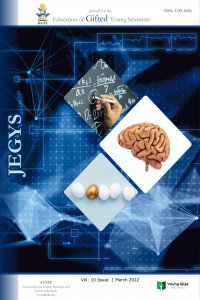Research Article
Exploring the constraints of space in enhancing giftedness of academics and administrative staff in higher education
Abstract
This paper reports on a study that was conducted in Higher Education Institution (HEI) of Gauteng Province, South Africa. It forms part of a larger research project, which is “The dynamics of higher education space and place in Sub-Saharan Africa”. The participants were randomly selected, and they were readily available. The aim of the study was to explore the perceptions and experiences of 17 academics, 4 administrative staff, and 1 chair of the department, and 1 school director. This was a qualitative study that used interviews. In this paper, the perceptions discussed are those of the academics and administrative staff only. The shortage of space in South African higher education institutions is a cause for concern; daily reports appear in the written and electronic media about the shortage of lived and conceived spaces. The findings suggest that space as a constraint in the utilization of higher education spaces is of serious concern in enhancing the giftedness of academics and administrative staff in higher education spaces. And this is one of the internal factors that exacerbate the poor performance of academics and administrative staff at the university. The study recommends that there is a need to utilize space and policies effectively. A well-ordered HEI is also a less constraining environment. HEIs that experience problems of shortage of lived and conceived spaces need active academics, administrative staff, chairs of department, directors, and policies that monitor space; recommend, redress enabling measures; and oversee policy implementation.
References
- Mtonga, Kambombo; Twahirwa, Evariste; Kumaran, Santhi; and Jayavel, Kayalvizhi (2021). Modelling Classroom Space Allocation at University of Rwanda-A Linear Programming Approach, Applications and Applied Mathematics: An International Journal (AAM), Vol. 16, Iss. 1, Article 40. Available at: https://digitalcommons.pvamu.edu/aam/vol16/iss1/40
Year 2022,
Volume: 10 Issue: 1, 11 - 22, 30.03.2022
Abstract
References
- Mtonga, Kambombo; Twahirwa, Evariste; Kumaran, Santhi; and Jayavel, Kayalvizhi (2021). Modelling Classroom Space Allocation at University of Rwanda-A Linear Programming Approach, Applications and Applied Mathematics: An International Journal (AAM), Vol. 16, Iss. 1, Article 40. Available at: https://digitalcommons.pvamu.edu/aam/vol16/iss1/40
There are 1 citations in total.
Details
| Primary Language | English |
|---|---|
| Subjects | Other Fields of Education |
| Journal Section | Sustainability of Education |
| Authors | |
| Publication Date | March 30, 2022 |
| Published in Issue | Year 2022 Volume: 10 Issue: 1 |
Cite
By introducing the concept of the "Gifted Young Scientist," JEGYS has initiated a new research trend at the intersection of science-field education and gifted education.


